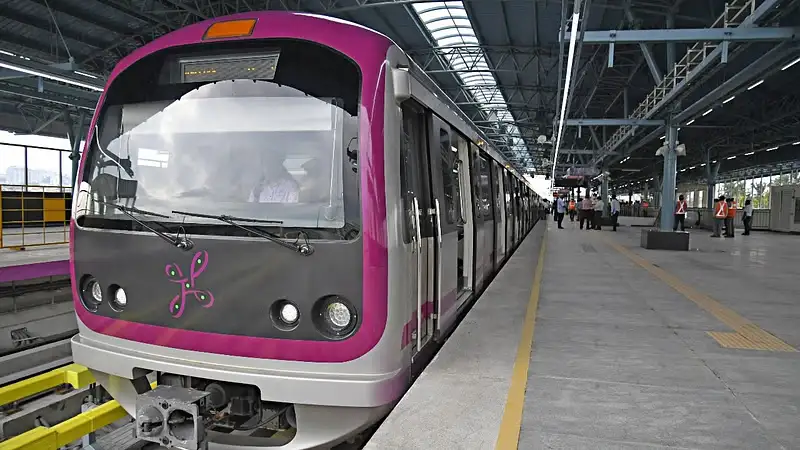Outrage Over Instagram Account Sharing Unsolicited Photos of Women on Bengaluru Metro Sparks Police Action
In a troubling incident that has triggered widespread public anger, Bengaluru police have registered a First Information Report (FIR) against an Instagram account that posted unsolicited photos of women traveling on the Namma Metro. The account, now removed, uploaded images of female passengers without their consent, often paired with inappropriate captions or hashtags.

Public backlash began after concerned social media users exposed the account’s activities. Many people demanded urgent action, tagging authorities like the Bengaluru Metro Rail Corporation Limited (BMRCL), Karnataka Police, and Instagram. This online outcry revived important conversations about digital consent, harassment, and how tech platforms should handle such cases.
What Happened: The Account That Violated Privacy
The Instagram handle drew attention when screenshots of its posts started circulating online. The posts showed random women inside metro trains or walking on platforms, clearly unaware they were being photographed. Some captions appeared lewd or objectifying, making the content even more troubling.
Users called out the account’s behavior as a violation of privacy and dignity. What started as discomfort soon escalated into a movement demanding justice. The public quickly pressured authorities and Instagram to take down the account and identify the person responsible.
Bengaluru Police Respond Swiftly
After the online uproar, police registered an FIR under sections of the Indian Penal Code (IPC) and Information Technology (IT) Act. Officers began investigating the matter through their cybercrime division. They also contacted Meta, Instagram’s parent company, to trace the account’s owner.
A senior police official confirmed the developments. “Posting someone’s image without consent, especially in a sexualized context, is a serious offense. We are taking this case very seriously,” the officer said. The investigation aims to bring the offender to justice and prevent future violations.
Legal View: Where Consent Ends and Crime Begins
This case has brought digital consent into focus again. While public spaces like metro stations don’t guarantee complete privacy, taking someone’s photo and sharing it online with harmful intent crosses ethical and legal lines.
Indian law supports victims in such situations. Section 66E of the IT Act punishes people who violate someone’s privacy by capturing and sharing images of private areas without consent. Sections like 354D (stalking) and 509 (insulting the modesty of a woman) under the IPC also apply.
Legal experts and women’s rights advocates emphasized the need for public awareness. “Many people don’t realize that what seems like a harmless post can actually lead to jail time,” said a Bengaluru-based lawyer. She urged people to learn the difference between casual photography and online harassment.
BMRCL’s Reaction: Safety First
The Bengaluru Metro Rail Corporation Limited responded with strong words. “We do not tolerate such actions. Our team is cooperating with the police to support the investigation,” said a BMRCL spokesperson.
The metro authority plans to boost passenger safety by improving surveillance at stations and inside coaches. Officials also discussed adding more public awareness posters and updating their mobile app to let commuters report inappropriate behavior easily.
Women Speak Out: “We Deserve Respect in Public Spaces”
Many women took to social media to share their discomfort and fears about being watched or secretly photographed. “Sometimes I notice people pointing their phone toward me and feel anxious. Now I know those fears weren’t irrational,” said a daily metro commuter.
These personal stories have highlighted how everyday experiences can turn into silent battles against anxiety and objectification. Women are now demanding not only stricter laws but also more empathy from the public.
Experts believe that educating people about online boundaries and consent should start in schools and colleges. “This isn’t just a law-and-order problem. It’s a cultural issue too,” said a digital safety educator. Teaching students about responsible smartphone use, digital ethics, and respecting boundaries can prevent such incidents before they happen.
Accountability for Tech Platforms
Instagram and its parent company Meta faced heavy criticism for not acting faster despite multiple reports. Although the platform removed the account, critics pointed out that the response was reactive, not proactive.
In a statement, Meta said, “We removed the account for violating our Community Guidelines. Users should continue to report content they find abusive or inappropriate.”
Privacy advocates, however, argued that platforms like Instagram must improve content moderation systems. Many believe that artificial intelligence tools should detect and stop harmful content before it reaches a wide audience.
A Call for Change
This Bengaluru metro incident serves as a wake-up call. It’s not just about one Instagram account—it reflects a deeper problem of online behavior, lack of awareness, and weak digital boundaries. If society doesn’t address these issues now, more people—especially women—will continue to face similar harassment.
Stronger laws, faster platform responses, and more public education can help close the gap. Most importantly, people need to understand that public presence doesn’t mean public ownership. Everyone deserves the right to move freely without worrying about being watched, photographed, or ridiculed online.






